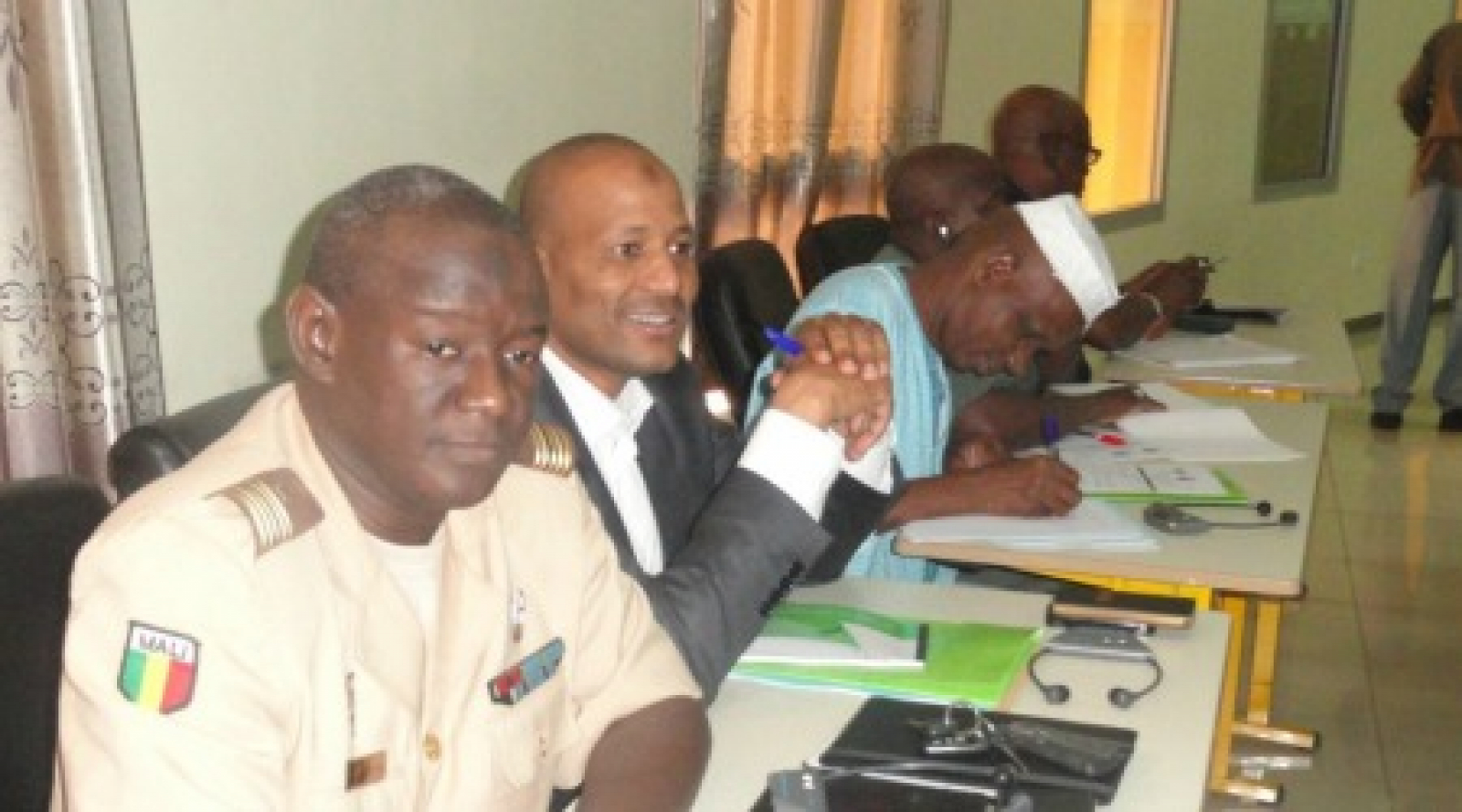
SHARE
Mali faces multiple national security challenges, from former separatist rebels in the north to violent attacks by radical Islamist factions across the country, including in Bamako. Combined with porous borders through which arms, drugs and members of criminal networks pass, the Government of Mali (GOM) must handle multi-faceted threats across a vast expanse of territory. Without effective, well-equipped mechanisms in place or sufficient resources and knowledge, Malian authorities are unable to implement fully and thoroughly the June 2015 peace accord or carry out the decentralization mandated in the accord.
As a participant country in the U.S. Security Governance Initiative (SGI), launched by President Obama during the 2014 U.S.-Africa Leaders Summit, Mali has worked with U.S. officials to develop a plan outlining the country’s participation in this initiative. GOM authorities have expressed their commitment to set guidelines for implementing the peace agreement; disarming, demobilizing and reintegrating former rebel fighters; advancing security sector reform; promoting national reconciliation; and decentralizing government services.
Following a GOM request for SGI assistance to create and institutionalize a functional inter-ministerial coordination mechanism, NDI received funding from the U.S. Department of State Fundamental Freedoms Fund (FFF) to convene relevant actors from across Malian governmental ministries to develop a potential design for an inter-ministerial mechanism to address current and emerging security challenges. Through such a framework, the GOM can better harmonize actions on security sector issues and communicate with other stakeholders.
NDI, in collaboration with the GOM and SGI, organized a workshop in Bamako from June 28 to 30 to catalyze the development of this coordination mechanism. Bringing 37 officials from five key ministries – those responsible for defense, interior, foreign affairs, justice and finance – together with subject matter experts from West Africa and the U.S., the workshop provided participants with techniques and tools to conceptualize and create a structure to improve sustained coordination across these ministries.
To further learning and spark debate on the form such a mechanism could take, NDI engaged three expert consultants to research and author case studies highlighting examples of inter-ministerial coordination. The studies included Mali’s response to the Ebola epidemic, the creation of the National Coordination Commission against Drugs in Niger, and the development and implementation of an anti-terrorism action plan by the Government of Cote d’Ivoire. Practical knowledge was contributed by several current and former U.S. and Malian Government officials sharing their experiences.

U.S. General Ed Donnelly (retired) discussed security policy and strategy development, presenting different models used by a diverse array of countries, while Colonel Major Abdrahamane Baby of Mali’s defense ministry outlined the GOM’s current procedures for producing strategic policy documents related to defense and military national security. Former U.S. Ambassador to Kenya, William Bellamy, provided an account of the U.S. National Security Council’s origins and its different iterations under a succession of presidents, an area of much interest to the Malian authorities. Philip Breeden, former U.S. Foreign Service Officer, elaborated seven criteria for effective coordination between government agencies, as well as between government agencies and non-governmental actors such as the media, civil society and elected officials.
Participants from different ministries broke out into small groups and were given a real security challenge to address: preventing violent extremism, resolving the community-based conflict in Mali’s central region or securing Mali’s borders through a decentralized system. Participants used the seven coordination criteria to design a mechanism for inter-ministerial coordination. The three case studies served as “food for thought” from which to draw ideas and distill lessons learned. Based on their assigned case studies, each group determined the best approach to address and resolve their challenge and formulate a structure through which the relevant GOM ministries and actors could do the same.
After groups shared their ideas in the plenary, participants commented on and critiqued the proposed mechanisms in a lively debate. This exercise was replicated the next day, but with a different mixture of participants forming groups, and with a different task--to formulate a mechanism with the flexibility, authority and resourcefulness to respond to any security challenge that Mali currently faces, or might encounter in the future.

In closing the event, the director of Mali’s National Commission for Security Sector Reform, Ibrahima Diallo, and the U.S. Ambassador to Mali, Paul A. Folmsbee, underscored for participants the importance of this collaborative meeting. They emphasized the need for an effective coordination mechanism. GOM participants expressed their commitment to working with SGI to develop a mechanism through which to coordinate the government’s response to security sector challenges. Following the workshop, NDI Mali is working with the GOM focal point as well as U.S. Embassy and SGI officials to develop a report containing the inter-ministerial group’s recommendations for developing and implementing such a mechanism.


